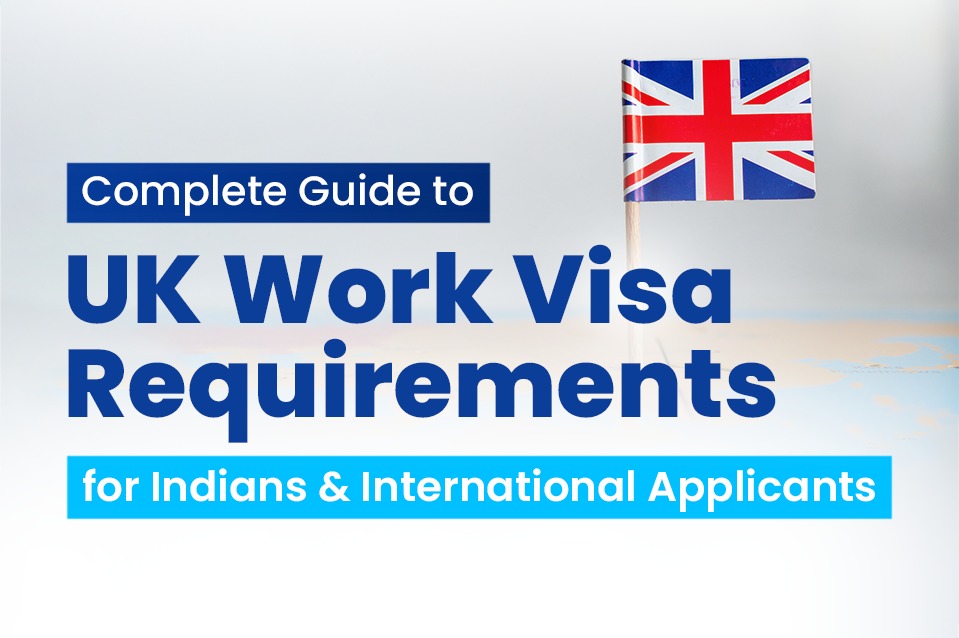
Most working professionals who wish to pursue a career abroad keep the UK and Australia as their top choices. However, if one had to choose between these two countries, which one would they choose?
When considering your alternatives and selecting a location, it's crucial to ensure that the nation you choose is compatible with your lifestyle and professional aspirations.
Today, we're focusing on Australia and the UK, two options with the most comprehensive range of potential outcomes and pronounced distinctions. Find out which nation best fits you by reading on!
Job opportunities
Salary
Standard of living
Work-life balance
Work culture
Social & cultural experience
Travel
Education
Healthcare
Social security
Infrastructure
The unemployment rate in the United Kingdom remained at 3.8 per cent in the three months to May 2022, the same as in the previous quarter and lower than estimates of 3.9 per cent, indicating that the labour market is solid despite rising prices straining the cost of living. There are 1.257 million fewer unemployed persons than job vacancies, which have reached a fresh high of 1.295 million.
Whereas in Australia, the seasonally adjusted unemployment rate remained at 3.9 per cent in May 2022, according to data released today by the Australian Bureau of Statistics (ABS).
Unsurprisingly, the first thing that many Australian professionals want to know is their potential income. As you can expect, there are so many factors to take into account that there are no clear-cut solutions. Ultimately, the kind of salary you may wish will depend on various criteria, like your experience, your profession, the industry you work in, your qualifications, and many more.
According to the TechTarget Income Survey 2016 APAC, IT professionals in Australia earn an average salary of A$80,000 (£50,000) per year, which is higher than that of their counterparts in the UK. However, according to studies conducted in the UK, 40 per cent of the highest earners receive more than 20 per cent of their income from sources other than their salary.
There is a widespread misperception that living in the UK, especially in London, is far more expensive than in Australia and New Zealand. London consistently ranks in the top five "world's most expensive cities," giving people the impression that while participating in an overseas experience is a fantastic idea, doing so will be challenging due to the high cost of living.
That's not true, to put it briefly. Although London can indeed be expensive, the overall cost of living is more than competitive with that of Australia. According to Numbeo, a global city cost comparison source, with over 4 million people sharing their living expenses online, it is found that when you compare the UK to Australia, it's pronounced that in many areas, the UK is comparatively cheaper.
Australia has the best work-life balance of any country in the world. More people appreciate their way of life. And rightfully so—when the sun is shining brightly, it's difficult to resist a relaxing afternoon with a beer. However, the importance of work-life balance is becoming more and more recognised in Britain. Many employees are required to put in extremely long hours of work because of the economy's volatility and the fast-paced corporate milieu.
Working in the UK is unlike working anywhere else on the planet. While no two workplaces in the United Kingdom are alike, there are some characteristics that they all share. You'll notice that the office culture in the United Kingdom is generally more laid-back and convivial. Outside work, colleagues socialise with one another, and birthdays are frequently honoured with cake or a casual afternoon of socialising.
There is nothing like working in the UK for a living. There are some traits that all workplaces in the UK share, even though no two are exactly the same. You'll observe that British workplaces tend to be friendlier and more relaxed overall. Coworkers socialise with one another outside of work, and birthdays are commonly celebrated with cake or a laid-back afternoon of mingling. Moreover, Australians typically work longer hours and won't turn down more tasks. They try to maintain a clear separation between their personal and professional life.
Australia and the UK have pretty diverse cultural heritages, and the UK is among the oldest nations on the planet. In new places like Australia, you shouldn't anticipate much in the way of history and a feeling of culture. It can also be a big negative for someone who loves historical traditions, architecture, etc.
Australia is a cultural wasteland in contrast to the UK. As a result, the UK is unquestionably the best option if you appreciate literature, art, history, and intellectual life. Contrarily, you can enjoy skyscrapers, air-conditioned retail centres, and golden beaches in Australia. However, it might grow monotonous with time.
An immense culture shock may occur in Australia's Christmas season when many Australians prefer to celebrate with outdoor barbecues to traditional Christmas dinners. Unlike the British, Australian comedy focuses on making fun of oneself, and they lovingly tease their buddies.
Most professionals take every opportunity to spend extended weekends travelling throughout Europe, making the UK one of the world's top countries for international travel. In the UK, you are in the heart of Europe, and a train could get from London to Paris and back in the same day. Many people make the daily trip from London to Paris for employment.
In Australia, you must go by flight whenever you want to visit another city, unlike in the UK, where you may drive for three hours or take a short, inexpensive flight to mainland Europe. Public transportation, including trains, trams, and buses, is efficient and readily accessible in the most prominent British cities and everywhere. While in Australia, taking a bus or rail will be difficult, and the best course of action is to fly from city to city.
You undoubtedly already know how well-regarded the British education system is. In addition to its prestige, studying at a British university won't break the bank as it can in Australia. For a year of undergraduate study, the average tuition price in the UK is £9,250 for nationals of the UK and the EU, and between £10,000 and £38,000 for international students.
In Australia, the average annual undergraduate tuition cost was $30,840 in 2018, while the average yearly postgraduate tuition cost was $31,596.
The Australian and British healthcare systems are centred on providing residents with an accessible, publically supported healthcare system. The United Kingdom and Australia have fulfilled this goal, contributing to their status as top immigration destinations. In Australia, all taxpayers contribute 1.5 per cent of their income to Medicare. This is known as the "Medicare Levy." Higher-income earners pay 2.5 per cent. The federal government pays for the remainder of the healthcare budget. Similarly, taxation and the immigrant health levy support 98.8 per cent of the NHS, with patient charges accounting for the remaining 1.2 per cent. The NHS provides free healthcare from GPs and hospitals to patients.
Social security is available to all citizens of the UK when they need it. The British government offers a variety of social security benefits, including income assistance, unemployment insurance, child benefits, housing benefits, council tax benefits, disability living allowances, invalid care allowances, and pensions. Australian citizens can rely on a reliable welfare system like they do in the UK. You will receive support whether you are young, aged, disabled, homeless, a parent, or jobless.
You cannot dispute that the UK has better infrastructure than Australia. In the UK, all forms of public transportation—trains, trams, buses, etc.—are extensively developed. Additionally, the UK has some of the world's most extraordinary flight connections because of its abundance of low-cost carriers and tens of airports.
Due to its size, Australia does not have a well-developed public transit system unless you want to fly. Consequently, aircraft are a significant component of the domestic transportation system.
In conclusion, as both countries offer so many different things, comparing life in the UK to life at home can occasionally be like comparing apples and pears.







